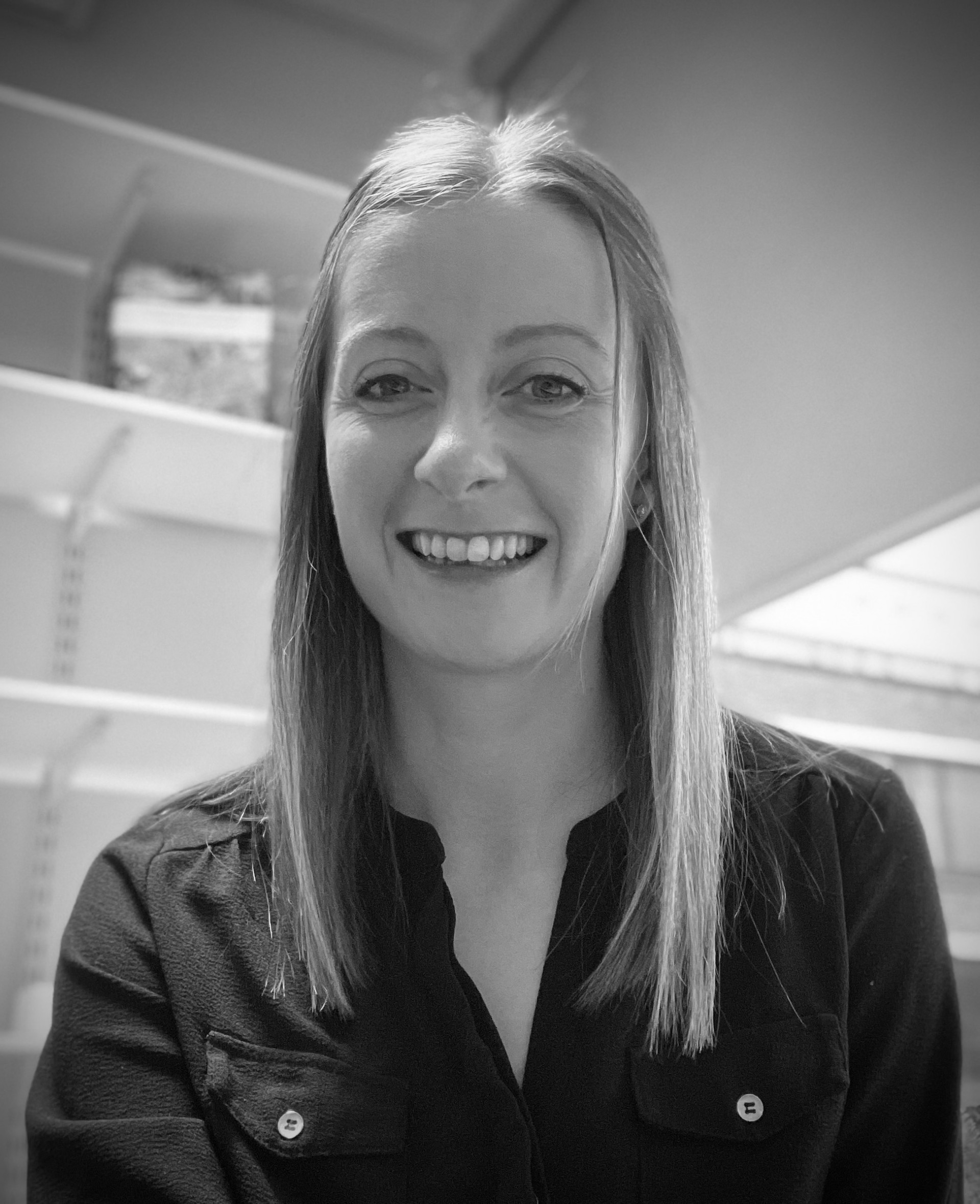Please browse our list of researchers below for more details about health-related research taking place in the arts, humanities and social sciences at Lancaster University. If you are a FASS researcher and would like your name to be included, please send a photo and brief overview of your research interests to s.wright9@lancaster.ac.uk.
Academic co-leads:
Professor Charlotte Baker, Professor of French and Critical Disability Studies
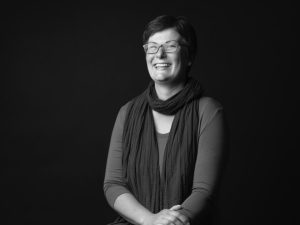
Charlotte Baker is Professor of French and Critical Disability Studies. Her research focuses on disability and stigma, particularly in sub-Saharan African contexts. She has published widely on the socio-cultural realities of living with albinism, cultural representations of albinism, and the human rights abuses against people with albinism.
Dr Sara Wasson, Reader in Gothic Studies
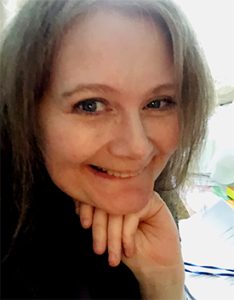
Sara Wasson is a literary and cultural studies scholar specialising in Gothic, science fiction, critical medical humanities, slow violence, and pain. She has published widely on chronic pain representation and transplantation studies, and she leads the AHRC-funded research network Translating Chronic Pain which aims to better represent chronic pain experience through flash writing. Her latest monograph is Transplantation Gothic, a shadow cultural history of fantasies of transfer under neoliberal capitalism.
Dr Stephanie Wright, Lecturer in Modern European History
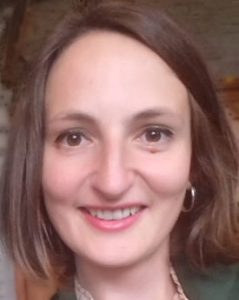 Stephanie is a historian of modern Spain, specialising in the histories of disability, psychiatry and sexuality during and after the Spanish Civil War. She is currently writing a book on the history of war disability after the Civil War, while working on her new research project on the use of forensic evidence in Spanish rape trials during the twentieth century.
Stephanie is a historian of modern Spain, specialising in the histories of disability, psychiatry and sexuality during and after the Spanish Civil War. She is currently writing a book on the history of war disability after the Civil War, while working on her new research project on the use of forensic evidence in Spanish rape trials during the twentieth century.
Researchers by department:
Department of Educational Research
Dr Natasa Lackovic, Senior Lecturer, Educational Research
Natasa is an interdisciplinary, educational researcher whose research focuses on improving student experiences and initiating educational and social change. In particular, this concerns student, youth and community wellbeing and mental health, including mental health literacy, language and discourse analysis, university-community partnership, as well as the integration of place and materiality in wellbeing and educational practices. Natasa has been developing a place-based/sociomaterial approach to student and community wellbeing.
English Literature and Creative Writing
 Jenn Ashworth’s work is primarily practice based: she writes fiction, memoir and literary essays that are often interested in the intersections between place, landscape, the body, care and illness. In 2019 she published Notes Made While Falling, a memoir-in-essays that explored postnatal mental illness, creativity and spirituality. The book was shortlisted for the Gordon Burn Prize and was a New Statesman Book of the Year. She is currently working on a book about walking that explores questions of how we care for sick and dying places and people.
Jenn Ashworth’s work is primarily practice based: she writes fiction, memoir and literary essays that are often interested in the intersections between place, landscape, the body, care and illness. In 2019 she published Notes Made While Falling, a memoir-in-essays that explored postnatal mental illness, creativity and spirituality. The book was shortlisted for the Gordon Burn Prize and was a New Statesman Book of the Year. She is currently working on a book about walking that explores questions of how we care for sick and dying places and people. Dr Liz Oakley-Brown, Senior Lecturer in English Literature
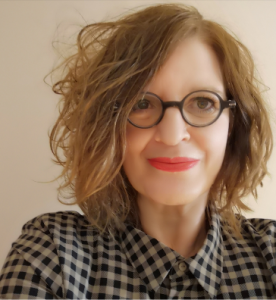
Liz teaches and researches premodern texts from twenty-first century perspectives. She has published widely on early modern Ovid, bodies and embodiment. One of Liz’s current projects — Embodying the Surface: Medical Humanities Before the Letter — considers premodern English writings’ contributions to this modern field of enquiry.
Professor Sharon Ruston, Chair in Romanticism
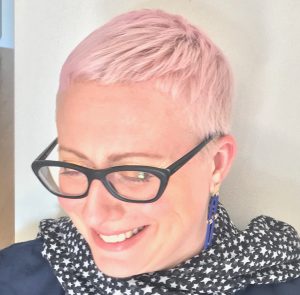
Professor Sharon Ruston is Chair in Romanticism and current Head of the English Literature and Creative Writing department at Lancaster University. She has published The Science of Life and Death in Frankenstein (2021), Creating Romanticism (2013), Romanticism: An Introduction (2010), and Shelley and Vitality (2005). She co-edited The Collected Letters of Sir Humphry Davy for Oxford University Press (2020), currently leads an AHRC-funded project to transcribe all of the Davy’s notebooks (https://wp.lancs.ac.uk/davynotebooks/), and is a Co-I on the Wellcome project ‘The Future of Human Reproduction’ (https://wp.lancs.ac.uk/futureofhumanreproduction/).
School of Global Affairs
Dr Benjamin Dalton, Lecturer in French Studies

Benjamin Dalton is Lecturer in French Studies in the Department of Languages and Cultures at Lancaster. He has published widely on representations of biological ‘plasticity’, mutability, and transformation in the contemporary French philosopher Catherine Malabou and contemporary French cultural production. His new research project explores approaches to the hospital in contemporary philosophy. He is particularly interested in how philosophy can help us rethink and transform hospital architecture, proposing future clinical environments.
Dr Véronique Lane, Lecturer in French Studies and Comparative Literature
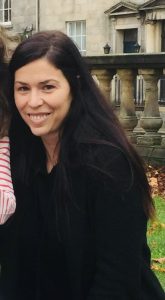
My current research project investigates the therapeutic value of the translation process for literary translators and NHS patients. My next monograph, which is under contract with Edinburgh University Press, offers a comparative analysis of works by seven modernist writers-translators who experienced mental health illness: Friedrich Hölderlin, Gérard de Nerval, Virginia Woolf, Marcel Proust, T.S. Eliot, Hilda Doolittle, and Antonin Artaud. It theorizes translation as a powerful form of introspection affecting the formation of creativity and identity.
Dr Deborah Madden, Lecturer in Hispanic Studies

Deborah Madden is a Lecturer in Hispanic Studies, specialising in the interface of sex, culture, and politics in contemporary Spain. Two strands characterise her current work on (post-)War Spain: trauma, affect, and sexual violence; and legacies of hunger and famine. A major grant application is under preparation for a project on reproductive justice in Iberia, which will interrogate questions of mental health, the body, and feminist politics.
Dr Samuel O’Donoghue, Lecturer in Spanish Studies
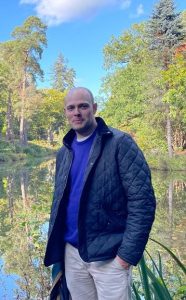
Samuel O’Donoghue is a Lecturer in Spanish Studies at Lancaster University. He specializes in contemporary peninsular Spanish literature both during and after the Franco dictatorship and works in the fields of trauma studies and memory studies. His research in the medical humanities includes publications on illness narratives, bibliotherapy, and metaphorical representations of pain.
Dr Amily Wang, Lecturer in Chinese Studies and Deputy Director of Confucius Institute

Dr. Amily Guenier’s research explores the role of metaphor in Traditional Chinese Medicine, as well as effective intercultural health and business communication. She has also supervised students in the Study China programme for 7 years, a £2.2 million initiative funded by the Government department for Business, Innovation and Skills.
Department of History
Dr Mark Hurst, Lecturer in the History of Human Rights

Mark is a historian of human rights whose research focuses on non-governmental organisations and activists during the Cold War, and more broadly in the history of dissent and political activism, especially in Russia and the Soviet Union. He has particular interests in the political abuse of psychiatry in the Soviet bloc, and the international efforts to campaign against it.
Rianna Price, PhD student in History
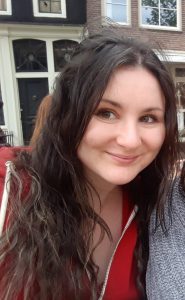
Rianna is a final year history PhD student and her thesis is on the medicalisation of queerness in post-Emergency India. She is interested in the legacy of colonial homophobia and psychiatric practices, as well as the contemporary socio-political status of homosexuality. Her work considers the interplay between medical discourse and social life, and how practitioners viewed their role in the therapeutic process. She also explores familial interventions in the medical and sexual lives of queer individuals and how this links to pathologised narratives.
Dr Alexander Wragge-Morley, Lecturer in the History of Science and Medicine
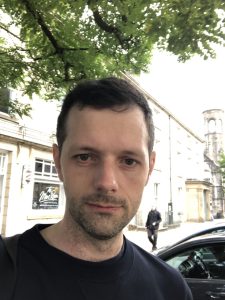
Alex Wragge-Morley works on the histories of science and medicine in the 17th and 18th centuries. At the moment, there are two strands in his research. First, he is working on a monograph about habit in eighteenth-century Britain. This project aims to reveal the role of medicalized ideas about bodily habits in key areas of eighteenth-century culture, from science and aesthetics to debates about the impact of disability on personhood. Second, he is launching an AHRC Networking project examining global, pre-modern ideas about the use of the arts in healthcare. Launching in September 2023, this project will bring together historians, neuroscientists, and healthcare practitioners in discussion about past approaches to the visual arts, literature, and music as means of healing.
Lancaster Environment Centre (LEC)
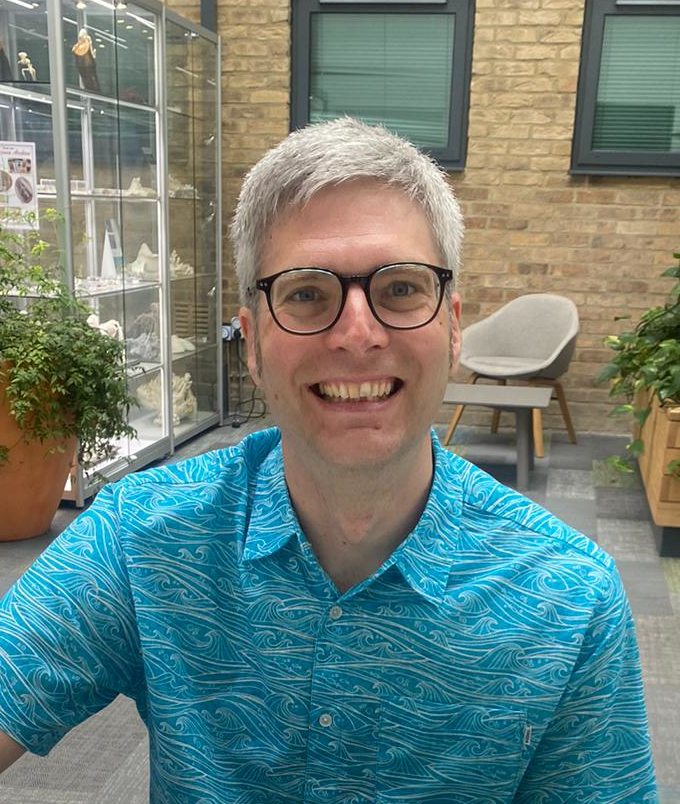
Andy is an interdisciplinary researcher drawing on health geography and person-centred psychotherapy. My research focuses on understanding people’s encounters with ‘nature’ and how these influence individual, community, and ecological wellbeing. Through my research I seek to develop our theoretical understanding of people-place encounters, to deepen our understanding of the myriad ways people encounter nature and the variability in their experiences.
Law School

Dr Esmorie Miller, Lecturer in Criminology

Dr Esmorie Miller is a Criminology Lecturer at Lancaster University Law School, researching Race, Youth, Gender and exclusion, in Britain and Canada. Her recent book Race, Recognition, and Retribution in Contemporary Youth Justice—the Intractability/Malleability Thesis historicizes race and racialization in contemporary youth justice, looking beyond customary crime and punishment narratives about youth’s criminal and offender identities. She looks at the expansion of penalty into racialized youth’s everyday lives. Following a Critical Race Theory logic, the racialization of punitiveness in contemporary YJ, extends to the everyday and reflects continuities of racialized peoples’ historic exclusion from modern, universal rights.
Professor Suzanne Ost, Professor of Law

Suzanne Ost’s research interests lie in health care/medical law and bioethics, particularly exploitation in health care, breaches of the sexual boundaries between doctors and patients, and the impact of criminal law on bioethics and health care practice. Her most recent monograph, Exploitation, Ethics and Law: Violating the Ethos of the Doctor-Patient Relationship (Routledge, 2001) analyses exploitation (conceptually, ethically and legally) in the doctor-patient relationship. Her current research includes an exploration of the implications of the theatre of public spectacle and debate surrounding cases of bioethical controversy for health care law. She was Expert Adviser to the Jersey Citizens’ Jury on Assisted Dying in 2021 and the Editor-in-Chief of the Medical Law Review 2011-2020.
Dr Thomas Peck, Lecturer in Law
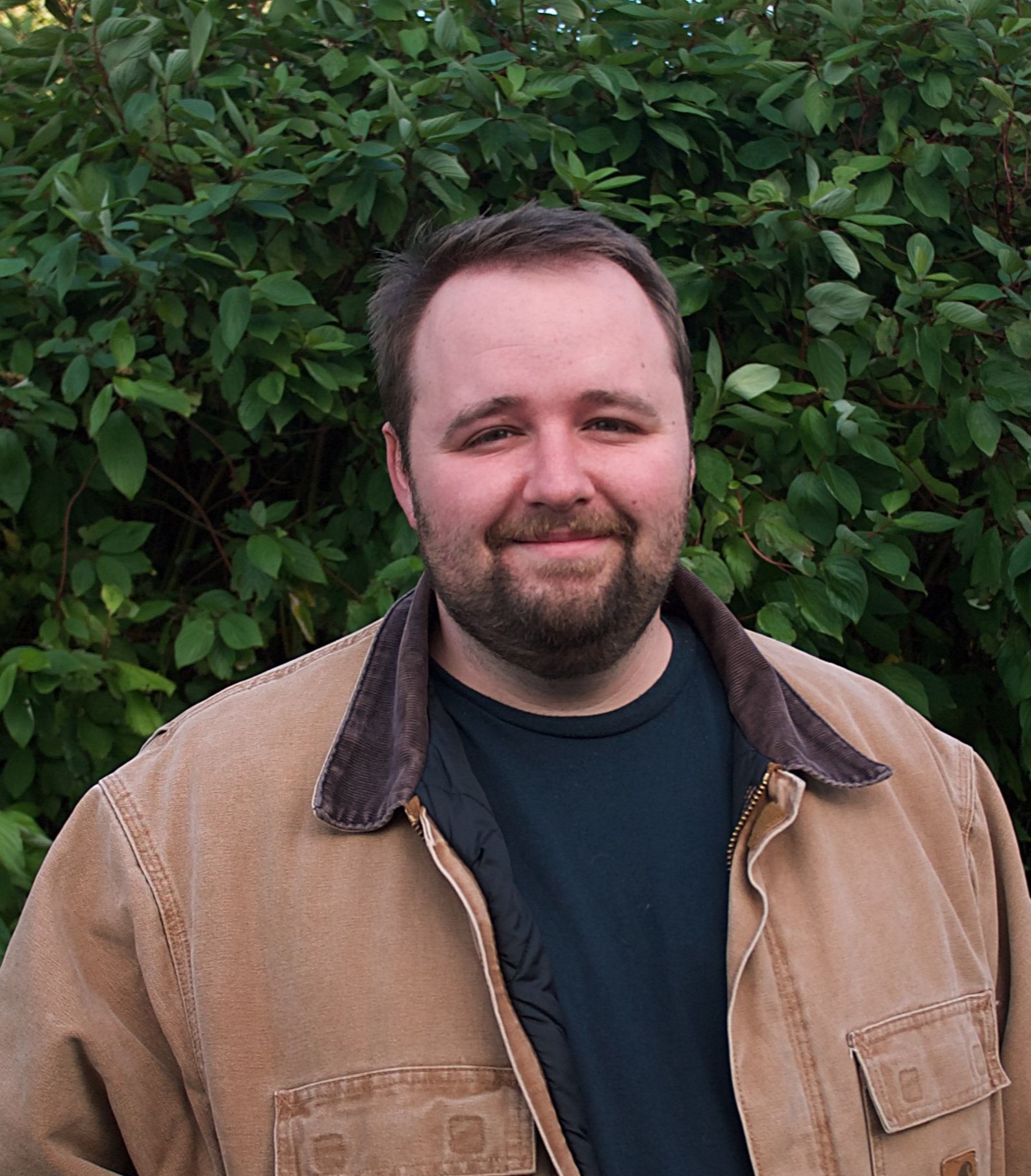
Tom’s research falls within the area of ‘Health and Human Rights’. His research considers pharmaceutical companies from a human rights perspective, examining their impact upon rights infringement and fulfilment. He has recently completed a project examining the harmful pricing practices of pharmaceutical companies and the impact on the right to access medicines. Tom’s latest project examines the implications of the human right to the environment, and the human rights of future generations, on the pharmaceutical industry and the development and production of medicines.
Dr Nayeli Urquiza, Lecturer in Law (Core Law)

Dr. Nayeli Urquiza is an interdisciplinary legal scholar whose work draws on methods from socio-legal and critical legal studies. She has published work on the relationship between corporeal vulnerability and the law, in particular, criminal law and drug laws. Her most recent work focused on the regulation of traditional medicine in the European and African contexts, drawing on insights from socio-legal studies and their intersection with Science and Technology Studies. She is generally interested in different aspects of the regulation of medicines, and how states organize and regulate borderline health care practices.
Dr Thomas Webb, Senior Lecturer in Law
I am an administrative lawyer interested in the processes for reviewing and legitimising the use of compulsory care under the Mental Health Act 1983. My research focusses on the work of Hospital Manager Panels, and considers their history, reform, and functioning today. I have previously made use of the Freedom of Information Act to gather data from NHS Trusts in England and Wales, and I am currently developing a project with colleagues that will engage with service users, panel members, clinicians and others around how Hospital Manager Panels operate.
Linguistics and English Language
Dr Dimitrinka Atanasova, Lecturer in Intercultural Communication

Dimitrinka Atanasova is Lecturer at the Department of Linguistics and English Language. She draws on theories and methods from applied linguistics, media & communication studies and sociology to research health & science communication (particularly around obesity, mental health, climate change, sustainability, nitrogen pollution) and developments in news journalism (currently, ‘constructive’ journalism). She focuses on the communication of health & science topics in various media (especially through culturally-embedded frames and metaphors) and how people discuss health & science topics using various media (and how their communicative practices may vary across cultures).
Professor Paul Baker, Professor of English Language

Paul Baker is Professor of English Language. He uses corpus-assisted methods to examine large collections of texts, including patient feedback, news articles and online forums. His recent books include The Language of Patient Feedback: A corpus linguistic study of online health communication (2019), Obesity in the News: Language and Representation in the Press (2021) and Language, Discourse and Anxiety (2023). He is a Fellow of the Academy of Social Sciences and the Royal Society of Arts in the UK.
Dr Gavin Brooks, Reader and UKRI Future Leader Fellow

Gavin Brookes is a Reader and UKRI Future Leader Fellow in the Department of Linguistics and English Language. His research uses corpus, critical and multimodal approaches to discourse analysis in order to examine language use within health(care) contexts and in relation to health and illness more broadly. Gavin is Principal Investigator on the UKRI-funded project, ‘Public Discourses of Dementia: Challenging Stigma and Promoting Personhood’. He co-edits the ‘Corpus and Discourse’ book series (Bloomsbury) and ‘Elements in Critical Discourse Studies’ (Cambridge University Press), and is Associate Editor of the International Journal of Corpus Linguistics (John Benjamins).
Dr Luke Collins, Senior Research Associate
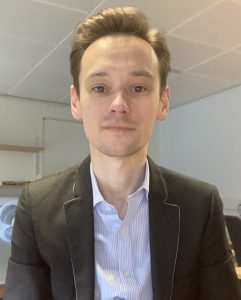
Professor Elena Semino, Professor of Linguistics and Verbal Art

Elena Semino is Professor of Linguistics and Verbal Art in the Department of Linguistics and English Language at Lancaster University, and Director of the ESRC Centre for Corpus Approaches to Social Science. She is a Fellow of the UK’s RSA and of the Academy of Social Sciences. She is Associate Editor of the journal Metaphor and Symbol. She specializes in health communication, medical humanities, corpus linguistics, stylistics, and metaphor theory and analysis. She is author of Metaphor in Discourse (Cambridge University Press, 2008) and lead author of Metaphor, Cancer and the End of Life: A Corpus-based Study (Routledge, 2018). She is Principal Investigator on the project ‘Questioning Vaccination Discourse: A Corpus-based Study’.
Professor Uta Papen, Professor of Literacy Studies
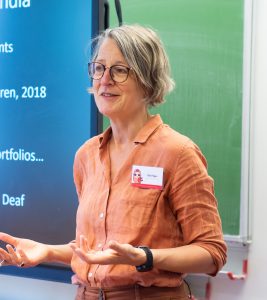
Linguistic Landscape Conference Nr. 13, HamburgI am a Professor of Literacy Studies in the Department of Linguistics and English Language and Co-Director of the Lancaster Literacy Research Centre (http://wp.lancs.ac.uk/literacy-research-centre/). With a background in social anthropology, much of my research has and continues to look at reading and writing in the context of health and mental health, specifically from the patient’s perspective. This includes looking at reading and writing practices to navigate health care systems and to make sense of illness. Recently, with colleagues, I have conducted a pilot study looking at how university students use creative literacy practices (e.g. poetry, blogging, journaling) to support their mental health and well-being.
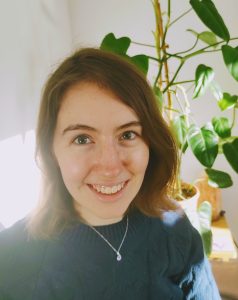
Department of Politics, Philosophy and Religion
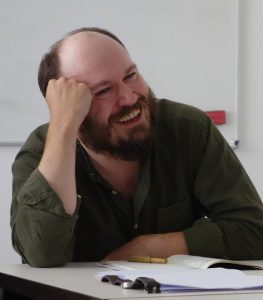
I am a philosopher interested in the self; in good and bad lives it might lead (aka welfare, well-being); in its reflexive powers and practices; in the roles of experience, reflection, and institutions in its development and success; and in how to do philosophy so as to advance our understanding of these issues. I am currently writing a book under the working title Subjects of Welfare, which is about the relations between philosophies of the self and philosophies of welfare, and makes use of speculative fiction about alien and artificial selves.
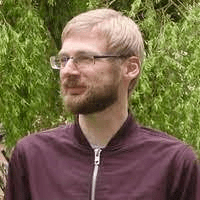
I am a philosopher of psychiatry who is interested in the metaphysical and epistemological status of psychiatric diagnoses. I have sought to portray them as idealised models that produce important generalisations but without describing actual people. I am also interested in the role of experts-by-experience in psychiatric research, aiming to understand how this relates to the abstract nature of science and the theory-laden nature of evidence. I also research the history of autism. I am myself autistic. I have done numerous jobs within PPR, including lecturer, post-doc and temporary lecturer.
Dr Garrath Williams, Senior Lecturer
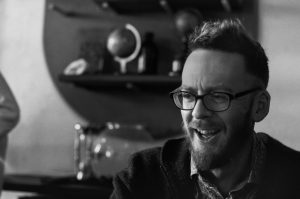
I work in moral philosophy, applied ethics, and political theory, and have interests across bioethics and public health. I have worked on epidemiological and intervention projects on children’s health (the IDEFICS and I.Family studies) – hence my co-authored book, Childhood Obesity: Ethical and Policy Issues. I’ve been involved in projects with colleagues at Lancaster on media representations of obesity and on co-designing ways to improve dialogue between people and organisations. I’ve also written on research ethics and epistemic (in)justice in medicine (https://garrathwilliams.weebly.com/garrath-williams-applied-ethics.html).
Department of Sociology

Jasmine Fledderjohann, Senior Lecturer in Sociology
Jasmine Fledderjohann is a Senior Lecturer in Sociology, a UKRI Future Leaders Fellow leading the Food Security for Equitable Futures project, and a Co-Investigator on the DigiAge project. She uses both secondary survey data and primary qualitative data to investigate health disparities, including food insecurity and its consequences, infertility, and barriers to reproductive justice. Her work focuses on India, Ghana, Ethiopia, Peru, Nepal, the US, the UK, and the global geopolitics of health more broadly.
